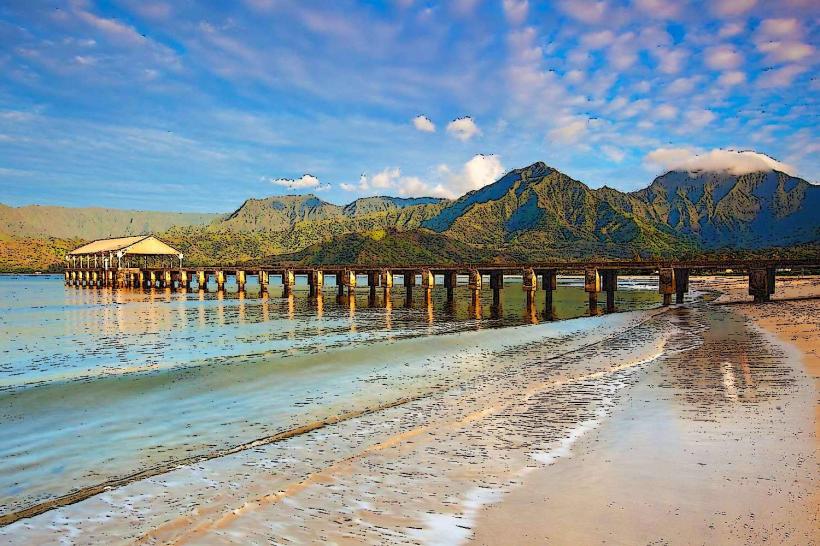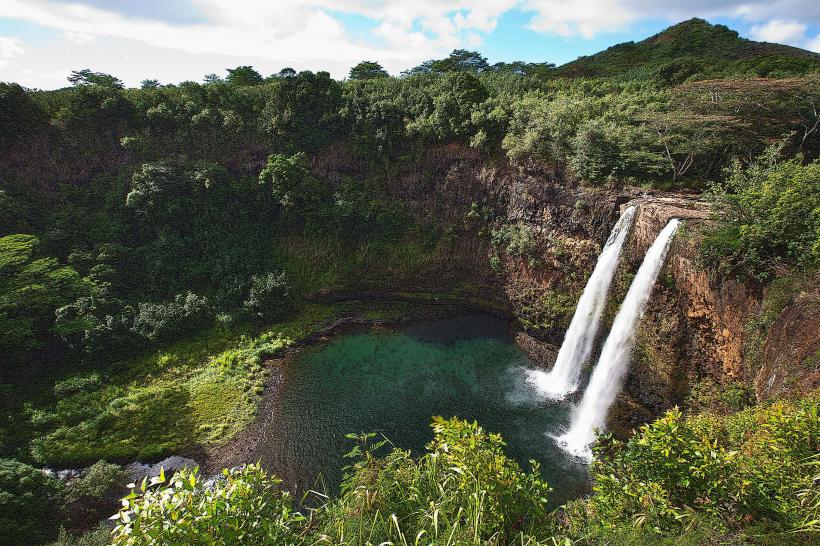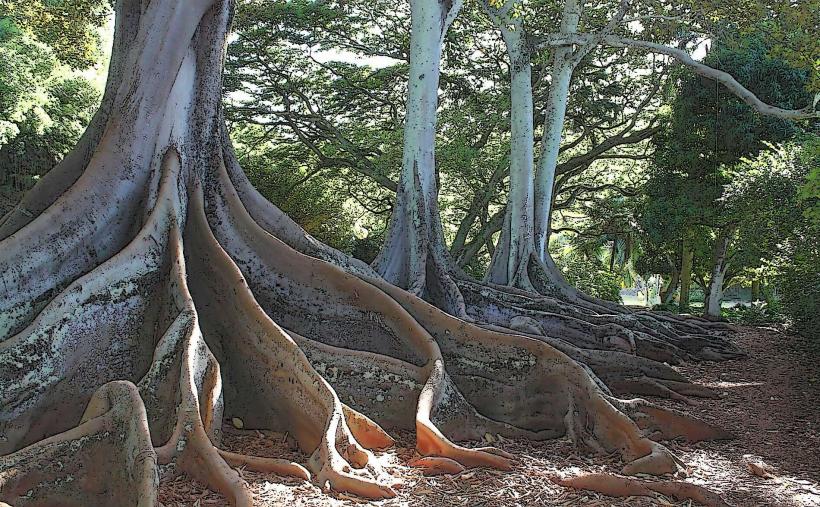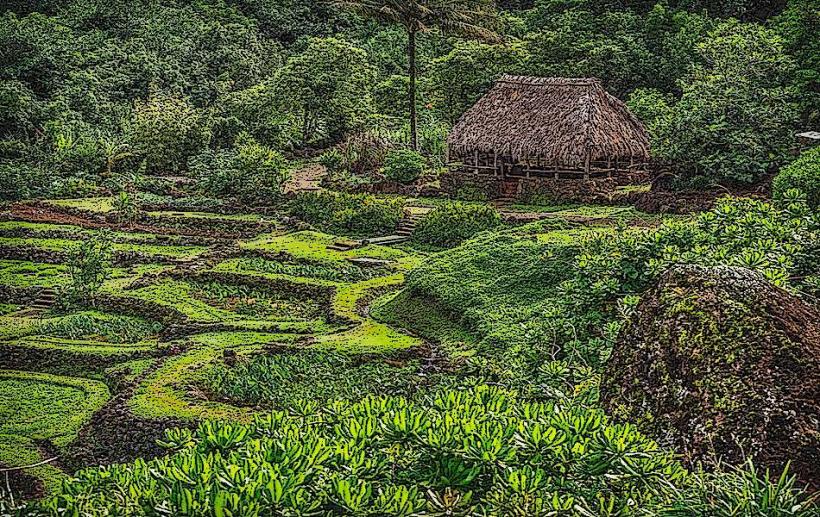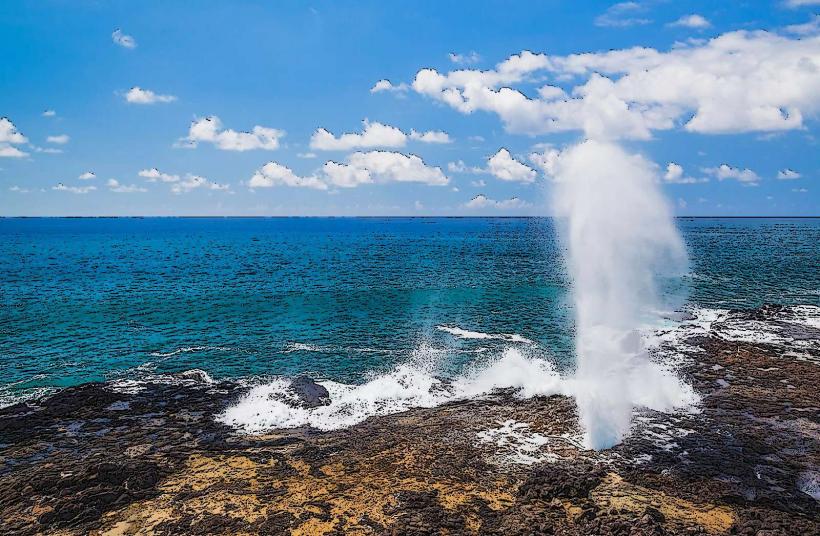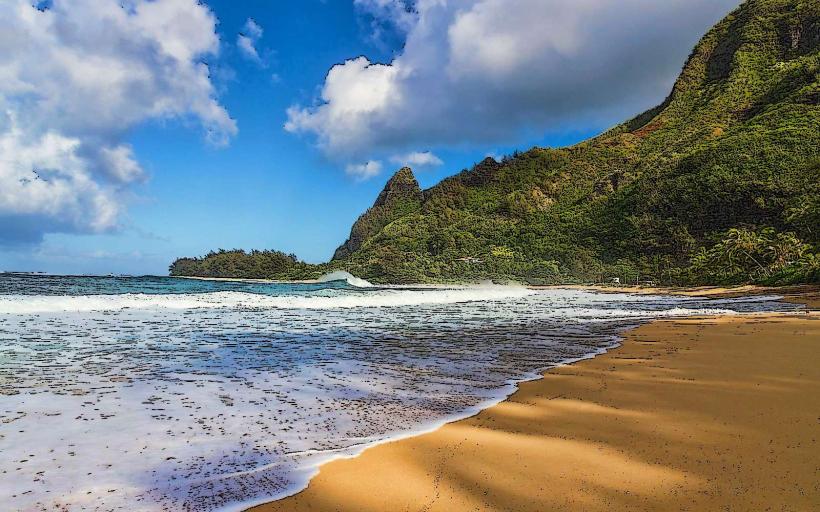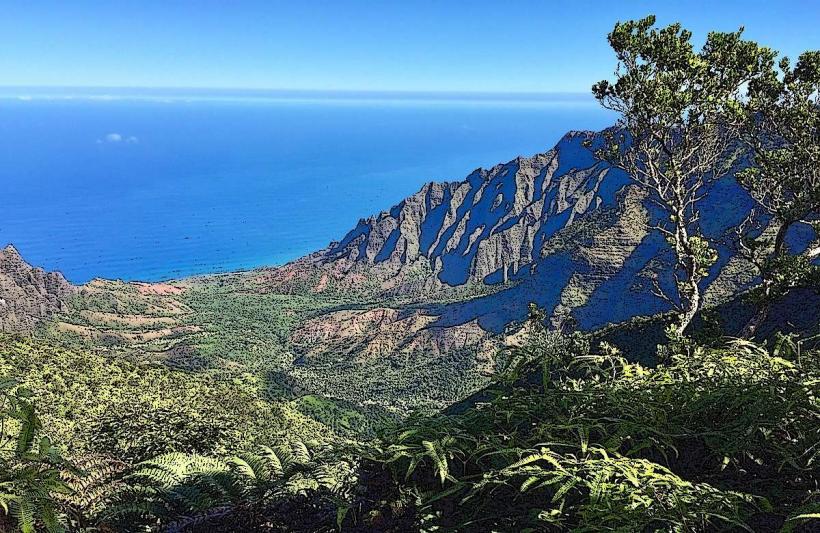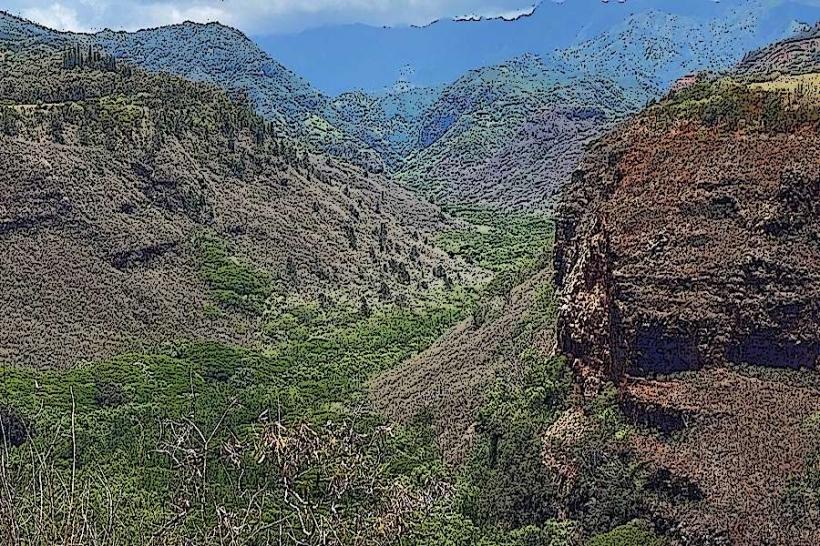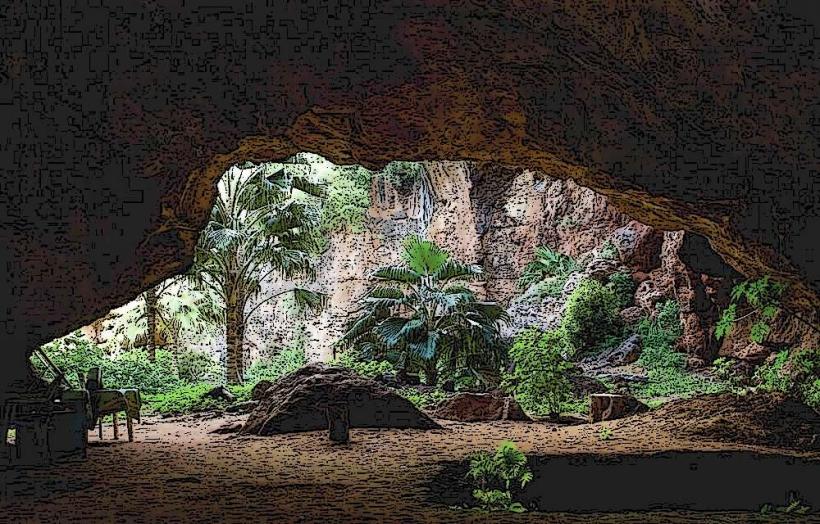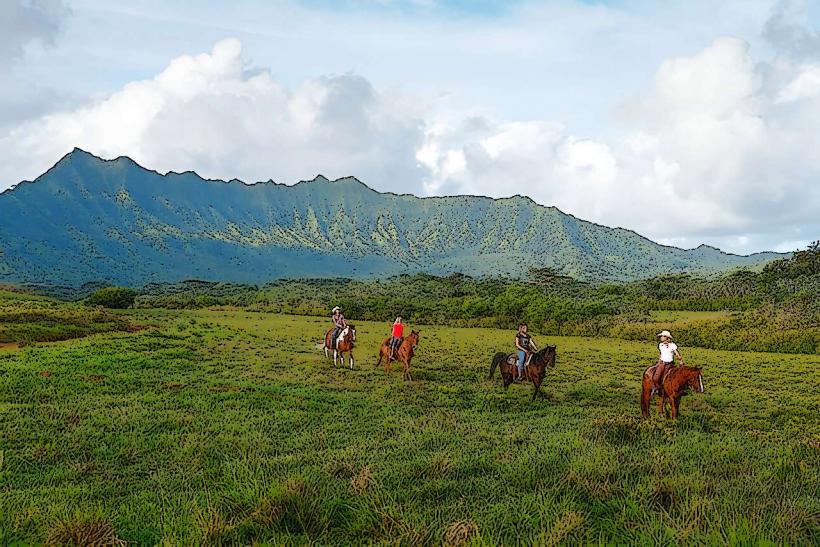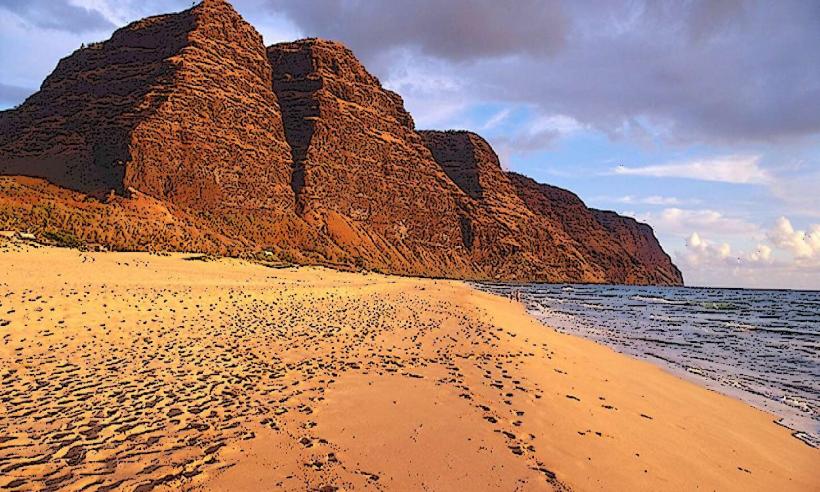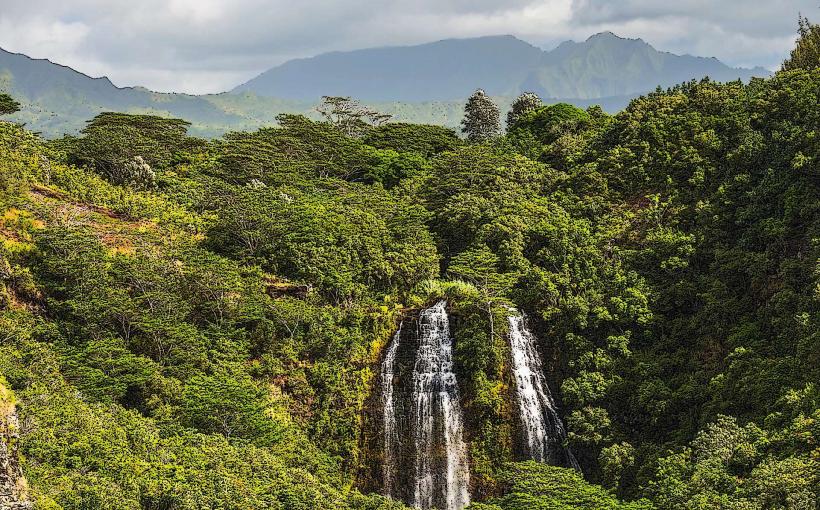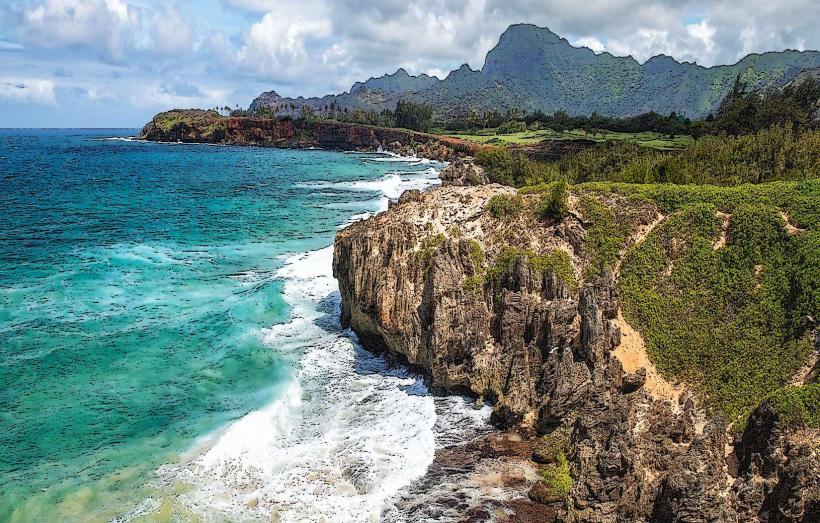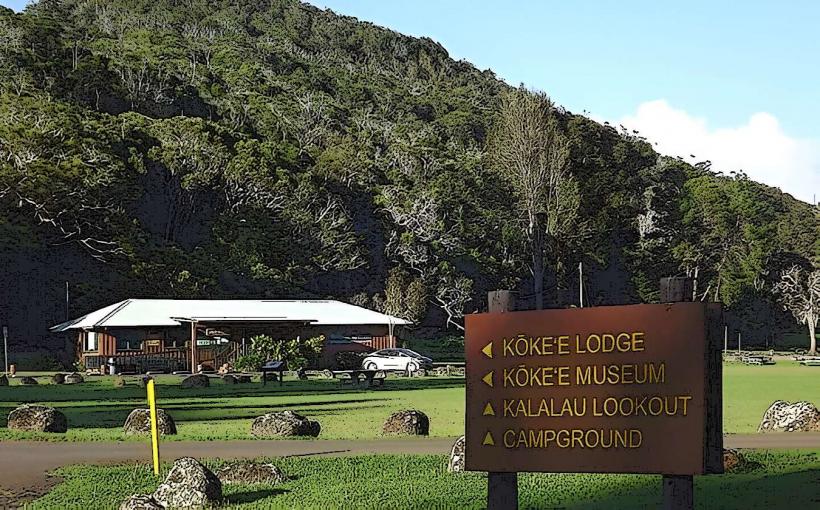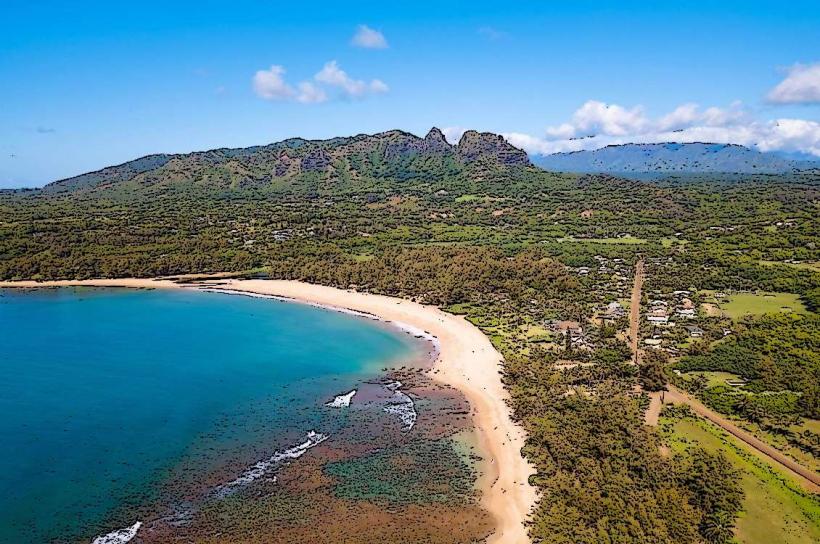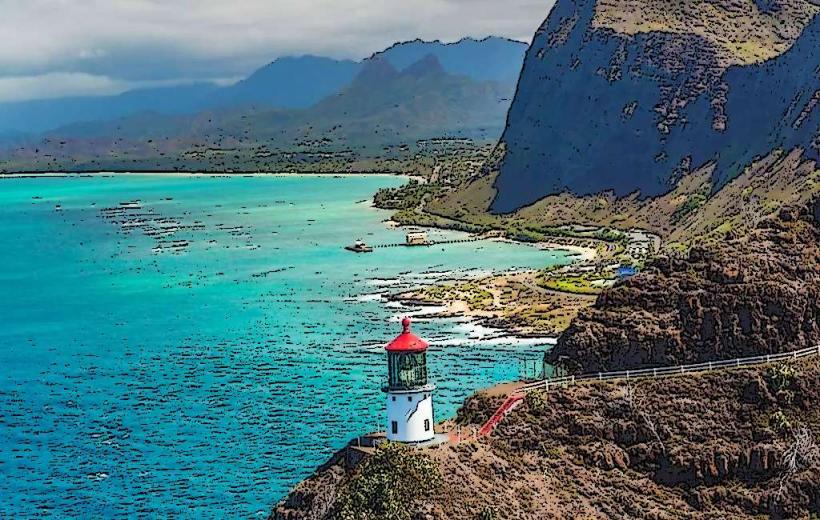Information
Landmark: Hanalei National Wildlife RefugeCity: Kauai
Country: USA Hawaii
Continent: North America
Hanalei National Wildlife Refuge, Kauai, USA Hawaii, North America
The Hanalei National Wildlife Refuge is a protected area located on the island of Kauai, Hawaii, USA.
This refuge encompasses approximately 917 acres of coastal wetlands and agricultural lands.
Visual Characteristics
The refuge consists of flat, low-lying wetlands characterized by rice paddies and taro fields. Water channels and ponds are interspersed throughout the landscape. Vegetation includes native wetland plants and agricultural crops. The surrounding terrain features the steep, verdant cliffs of the Hanalei Valley.
Location & Access Logistics
The refuge is situated on the north shore of Kauai, approximately 3 miles west of the town of Hanalei. Access is primarily via Kuhio Highway (Route 56). Turn north onto Maluhia Road, then west onto Hanalei Plantation Road. Limited parking is available at designated pull-offs along Hanalei Plantation Road. Public transport options are not directly available to the refuge interior; visitors typically use private vehicles.
Historical & Ecological Origin
The Hanalei National Wildlife Refuge was established in 1972. Its primary purpose is to protect and manage habitat for endangered and migratory birds, particularly the Hawaiian goose (Nene) and the koloa duck. The area's ecological significance lies in its role as a critical stopover point for migratory waterfowl and a breeding ground for native Hawaiian waterbirds. The wetlands are a result of both natural alluvial processes and historical agricultural practices, primarily rice cultivation.
Key Highlights & Activities
Observation of Hawaiian geese (Nene) and koloa ducks is a primary activity. Birdwatching for various migratory and resident species is possible. Photography of the landscape and wildlife is permitted. Access to the refuge interior is restricted to protect wildlife; viewing is generally from designated overlooks and roadsides.
Infrastructure & Amenities
Restrooms are not available within the refuge. There are no designated food vendors. Cell phone signal is intermittent to absent within the refuge boundaries. Shade is limited, primarily provided by natural vegetation along the roadsides.
Best Time to Visit
The best time for birdwatching is during the early morning or late afternoon when birds are most active. The months of October through April are optimal for observing migratory waterfowl. The dry season, generally from May to September, offers clearer views of the landscape.
Facts & Legends
The refuge is one of the last remaining natural habitats for the endangered koloa duck, a native Hawaiian species. Historically, the Hanalei Valley was a significant center for taro cultivation, a staple food for native Hawaiians. A specific tip for visitors is to scan the edges of the rice paddies carefully, as Nene often graze in these areas.
Nearby Landmarks
- Hanalei Pier (1.5km East)
- Hanalei Bay (2km East)
- Wailua River State Park (25km Southeast)
- Poipu Beach (45km Southwest)
- Waimea Canyon State Park (60km West)


